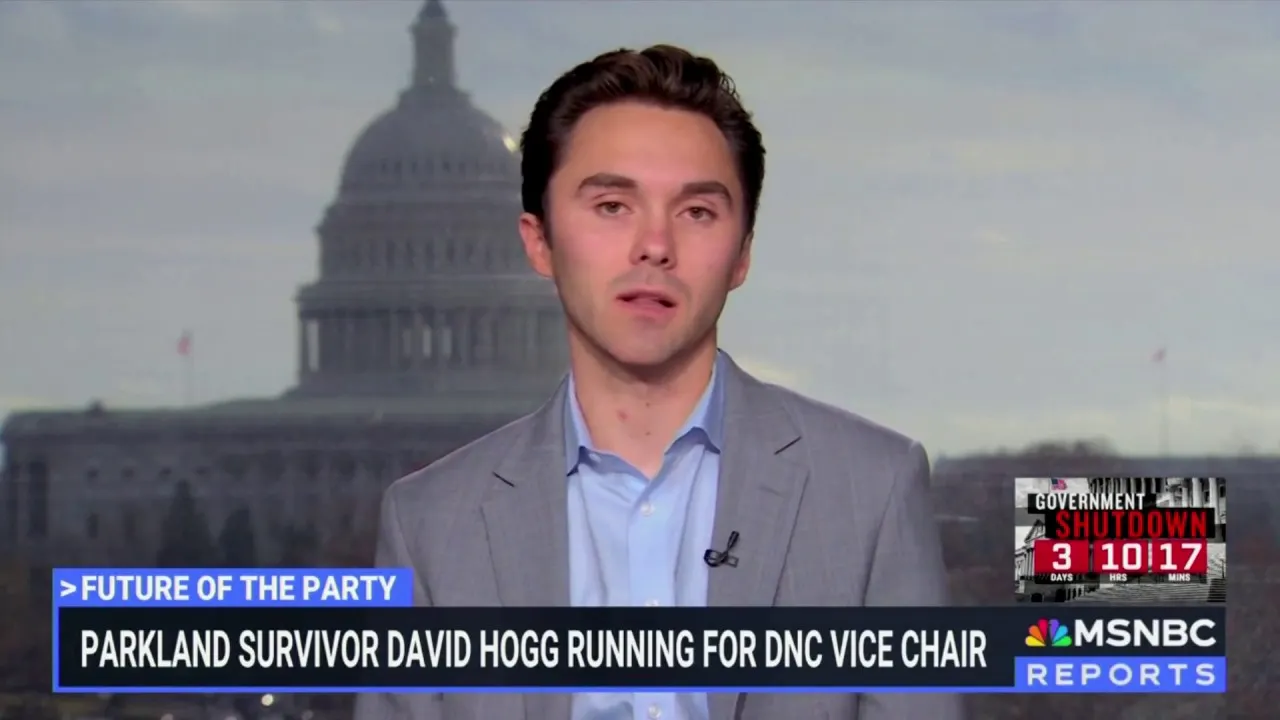David Hogg’s Controversial Inquiry: A Catalyst for Discussion on Democratic Outreach to Young Men
In a political landscape increasingly characterized by generational divides, activist David Hogg has ignited a fierce dialogue regarding the Democratic Party’s outreach strategies to younger male voters. His recent statements have not only drawn backlash but also highlighted deeper issues within party strategies aimed at engaging the youth demographic. This article explores the ramifications of Hogg’s remarks, the broader implications for political engagement, and the necessary steps for the Democratic Party to enhance its appeal among young men.
The Context of Hogg’s Comments
David Hogg, a prominent figure in the gun control movement and a vocal advocate for youth engagement in politics, questioned the Democratic Party’s approach to connecting with younger male voters during a recent public appearance. His commentary suggested that the party has struggled to resonate with this demographic, which is critical given the shifting dynamics of voter behavior in the United States.
This inquiry is not merely a reflection of Hogg’s personal observations but resonates with broader trends. Historically, young voters have leaned Democratic, yet recent elections have seen a worrying trend of disengagement among younger men, particularly in critical battleground states. Hogg’s openness to critique has led to a mixed reception, prompting both support and intense criticism from various political factions.
The Backlash: A Reflection of Polarized Politics
The backlash directed at Hogg underscores the current polarized political climate. Critics argue that his comments are unfounded and that the Democratic Party has made significant efforts to engage young voters through various initiatives, including social media campaigns and youth-centered policies.
Supporters of Hogg, however, emphasize that while outreach efforts exist, they may not be effectively tailored to resonate with young men specifically. This division within public opinion highlights a critical aspect of political discourse: the necessity for parties to not only reach out but to do so in a manner that genuinely connects with the target demographic.
Understanding Young Male Voter Disengagement
To address the issues raised by Hogg, it is essential to understand the factors contributing to the disengagement of young male voters:
- Cultural Identity and Political Messaging: Many young men may feel alienated by political messaging that does not resonate with their values or experiences. The Democratic Party, often perceived as prioritizing social issues, might inadvertently overlook the concerns of young men.
- Economic Concerns: Economic instability and job insecurity are significant concerns for many young voters. A focus on policies that directly address these issues, such as job creation and economic reform, could enhance engagement.
- Representation and Leadership: The perception of representation within political leadership can influence voter engagement. Young men may feel disconnected from a party that does not prominently feature leaders they can identify with.
The Democratic Party’s Current Outreach Efforts
In response to the evolving political landscape, the Democratic Party has made strides to engage younger voters through various initiatives:
- Social Media Campaigns: The party has utilized platforms like TikTok and Instagram to reach younger audiences, recognizing the importance of digital engagement.
- Grassroots Movements: Grassroots organizations have been mobilizing efforts to encourage voter registration and participation among young people, aiming to create a sense of community and collective action.
- Youth-Centric Policies: Topics such as climate change, education reform, and healthcare are pivotal. However, there is a need to ensure that messaging surrounding these policies effectively addresses the unique concerns of young men.
Strategies for Enhanced Engagement
To rebuild trust and enhance engagement with young male voters, the Democratic Party could consider the following strategies:
- Tailored Messaging: Developing messaging that speaks directly to the experiences and concerns of young men can create a stronger connection. This may involve using relatable figures and narratives in campaigns.
- Inclusive Leadership: Promoting diverse leadership that includes young men and addresses their concerns can foster a sense of belonging within the party.
- Focus on Economic Stability: Addressing economic issues with a robust policy framework that prioritizes job creation and economic security can resonate deeply with this demographic.
- Engagement through Community Building: Facilitating community-based discussions and forums that encourage young men to voice their opinions and concerns can create a more inclusive political environment.
Broader Implications for Political Engagement
The conversation sparked by Hogg’s remarks serves as a reminder of the importance of continuous dialogue between political parties and the constituents they aim to serve. The youth demographic, particularly young men, represents a crucial voting bloc whose engagement can significantly influence electoral outcomes.
Moreover, as the political landscape evolves, understanding the needs and values of diverse voter groups will be essential for any party seeking to maintain relevance in an increasingly competitive environment. This situation also highlights the importance of not only reaching out but ensuring that outreach efforts are meaningful and impactful.
Conclusion: A Path Forward
David Hogg’s inquiry into the Democratic Party’s outreach efforts to young men has opened up a necessary dialogue about political engagement. While the backlash he faced reflects the challenges of addressing such a complex issue, it also underscores the potential for growth and change within the party’s approach to youth engagement.
Ultimately, the Democratic Party must take heed of the concerns raised by both supporters and critics alike. By embracing a more inclusive, relatable, and responsive strategy, the party can not only enhance its appeal among young male voters but also foster a more engaged and active citizenry, essential for the health of democracy in the United States.
See more BBC Express News

